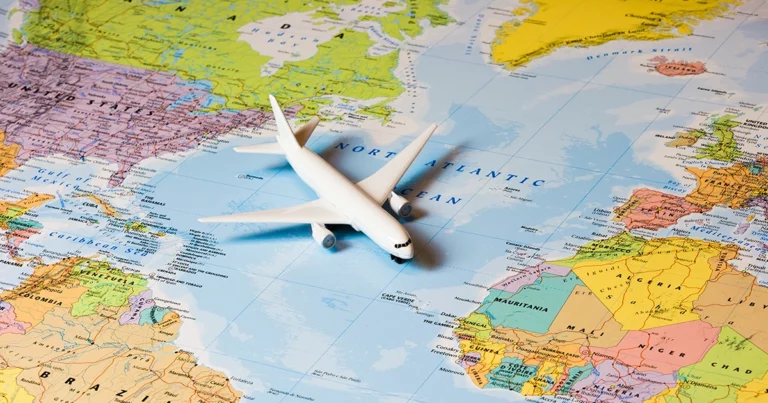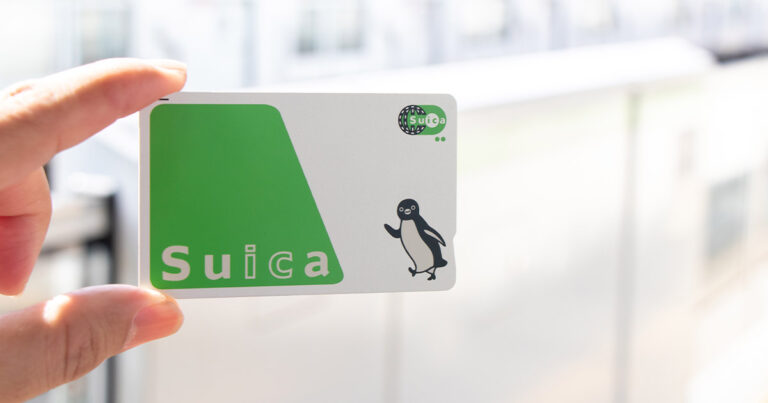
This article covers:
Known to be a world leader in research and innovation, Singapore takes pride in its world-class universities and international standard of education, that too at an affordable cost. In 2015, the island nation was ranked seventh in INSEAD Global Innovation Index, third in IMD’s 2014 World Competitiveness Rankings and the second in the World Economic Forum’s Global Competitiveness Report in 2014 and 2015. The country’s initiatives such as the “Global Schoolhouse” and presence of acclaimed universities have been instrumental in transforming Singapore into this global education hub, students flock to.
Then again, studying in Singapore isn’t just another jolly time in an exotic unknown place. It is an experience that broadens horizons with its vibrant culture. In fact, Singapore has been crowned as one of the most compatible cities for students. In 2016, QS ranked Singapore in the sixth place on the list of top cities for students. The criteria for rankings were based on universities, cost of living, the standard of living, job opportunities and student lifestyle compatibility. Another 2012 report by the Observatory on Borderless Higher Education (OBHE) revealed that out of the 70,000 international students in Singapore, around 3000 of them were Indian. It also stated that the number of Indian students studying in Singapore would increase by 25%, annually.
If you are planning to study overseas, but are deterred by education costs abroad, you would be glad to know that studying in Singapore is not as costly as you think. Check out these seven reasons why you should seriously consider studying in Singapore.
1. The Global Education System In Singapore

Recognized for its latest academics, distinguished faculty members and cutting-edge infrastructure, Singapore has a lot of scope for higher education. Universities in Singapore are both private and public which include in-campus provisions. Some of their world-class universities are Nanyang Technological University (NTU), National University of Singapore (NUS) and Singapore Management University (SMU). What gives Singaporean universities an edge over the other institutes is their association with universities across the globe. They are truly international universities providing high-quality education at an affordable cost. The universities even have strong connections to real-time industries and have all the provisions for a great job placement at the end of the term.
What’s more? Singapore also provides you industry-oriented programmes with many polytechnics. Some of the renowned polytechnics here are Nanyang Polytechnic, Republic Polytechnic, Ngee Ann Polytechnic, Temasek Polytechnic and Singapore Polytechnic. The nation also offers technical studies in business, electronics, media and applied sciences. ITE graduates have the technical skills and knowledge to work in several industries.
2. Apt For Exchange Students

If you’re looking for premier global tertiary education, Singapore is the perfect place. As a place, Singapore constitutes an eclectic student crowd that doesn’t give you a regional South Asian experience alone. It exposes you to cultures from across the world. Known as the international student city, it is imperative for the country to offer multiple exchange programmes. Singapore sees most of its exchange students coming in from the UK and other European nations. The institutes of Singapore are home to international campuses of popular universities from around the world such as Curtin University of Australia, University of Nevada of USA and Shanghai Jiaotong University of China. Thus, offering a galore of opportunities to students and exposing them to diverse cultures within its walls.
3. Cost Of Education In Singapore

Though Singapore is listed as one of the most expensive student destinations in Asia, it leaves behind more expensive destinations such as the UK, the USA and Australia when it comes to quality of education and affordability. On an average, the annual tuition fees in Singapore can sum up to the USD 11, 800. For a full-time MBA programme in a reputed international university such as the National University of Singapore Business School, the tuition fees can round-up to SGD 62,000 i.e. USD 45074.00. The best part of heading to Singapore for tertiary education is the privilege of subsidised fees. As an undergraduate, you can serve the Singaporean Government for your term and get your tuition fee subsidised. Postgraduates can also avail the subsidy provided they agree to serve the Singaporean Government for three years.
4. Cost Of Living In Singapore

When we said Singapore has a global cultural influence, we weren’t kidding. This diversity enables people to live at different costs, depending on their lifestyle choice. One can exploit the best-in-class facilities in leisure, entertainment, healthcare, transportation and other utilities. As for living costs, an international student in Singapore spends anywhere between SGD 750 and 2,000 a month. Students in Singapore either live in halls of residence, campus hostels, private hostels or in private housing aka flats. While staying on campus, an exchange or international student spends the following amount:
| AVERAGE MONTHLY EXPENSES | ||
| In SGD | In USD | |
Rental (University hostel) | 475 | 345.32 |
| Meals (At university hostel) | 350 | 254.45 |
| Bus Transport (Concessional) | 52 | 37.80 |
| Public Trains (Concessional pass) | 45 | 32.71 |
| Grand Total | 922 | 670.28 |
Else, you can always opt to stay in luxury at a shared student flat or a private hostel as well. The cost of living will alter given the extra space and living expenses. Here’s a break up of the expenses incurred while staying in a private hostel or shared flat:
| Staying In A Private Hostel/Shared Flat | Cost Per Month (SGD) |
| Accommodation | 150-700 |
| Utilities (including water and electricity) | 40-100 |
| 3 meals at a Food Court | 300-450 |
| Transportation | 50 |
| Telecommunications | 50 |
| Books and Stationery | 100/term |
| Personal Expenses | 100-300 |
5. Job Opportunities In Singapore

Singapore is a place where you can start earning even before you complete your education. International students have the option to work part-time for subsidised tuition fees. According to the Ministry of Manpower in Singapore, international students on a Student Pass in Singapore are eligible to work part-time for 16 hours a week during their course terms and for unlimited hours during vacation. But students must also keep in mind, this facility is possible only if their university allows a part-time work programme.
After getting an undergraduate or postgraduate degree in Singapore, there is an ocean of opportunities for foreign students. Once you have completed your graduation from a university in Singapore, you will be allowed to apply for a privilege called Long-Term Visit Pass. This will enable you to stay in Singapore for another one year even if you don’t secure a job. It gives international students the opportunity to seek employment in Singapore, and, if you do find a job, you will be granted a Work Pass.
6. Places Of Interest In Singapore

Singapore boasts of a mixed habitat. Its skyline is dotted with skyscrapers but also has a thriving ecosystem of nature and wildlife, rainforests, wetlands and nature reserves. The city has a charm about itself. It greets you with bright lights at night. The night is young till wee hours of the morning with its 24×7 themed nightclubs, clubs, live music bars, pubs and beach bars at every nook and corner. If you’re an evening stroller, there are shopping malls, museums and dining, along with thriving arts and cultural scenes. And, if you’re a sports lover, wakeboarding, windsurfing, and dragon-boat racing can be done all year-round except the monsoon season. There is also an encouragement towards winter sports in Singapore’s tropical climate. Singapore is also a food lover’s paradise and you will be spoilt for choice with delicious dishes from cuisines such as Chinese, Malay, Indian, Peranakan and others. Another great thing about being a student in Singapore is that you have the time to travel to other Asian countries such as Thailand, Malaysia, Indonesia, Cambodia and Vietnam, that too on a budget.
7. Connectivity Around The Globe

Singapore’s Changi Airport is one of the busiest and the best connected in the world, operating over 100 airlines that connect to around 300 cities. There are four local carriers, including the world-renowned Singapore Airlines and budget airlines Tiger Airways and Scoot. As for other exchange students, Singapore’s Changi Airport connects every country and city.
The growing population of Indian students in Singapore has led to the incorporation of regular flights to multiple cities in India at affordable costs.
8. Affordable Money Transfers

While education costs in Singapore are quite reasonable, a lot of money can be lost expensive money transfers to Singapore. Though most money transfer service providers promise zero fees, they eat up a major share of your money in FX margins and hidden charges.
InstaReM is here to change that. An overseas money transfer service provider, InstaReM enables money transfers to 55+ countries at Zero-Margin FX Rates. With a presence in Asia, Europe, the USA and the UK; InstaReM is completely transparent and charges you a nominal fee ranging between 0.25% and 1%. Check out the rates right away.
*SGD-USD conversion rates as on November 27, 2018.
Instarem stands at the forefront of international money transfer services, facilitating fast and secure transactions for both individuals and businesses. Our platform offers competitive exchange rates for popular currency pairs like USD to INR, SGD to INR, and AUD to INR. If you're looking to send money to India or transfer funds to any of 60+ global destinations, Instarem makes it easy for you. We are dedicated to simplifying cross-border payments, providing cutting-edge technology that support individuals and businesses alike in overcoming traditional fiscal barriers normally associated with banks. As a trusted and regulated brand under the umbrella of the Fintech Unicorn Nium Pte. Ltd., and its international subsidiaries, Instarem is your go-to for reliable global financial exchanges. Learn more about Instarem.

























